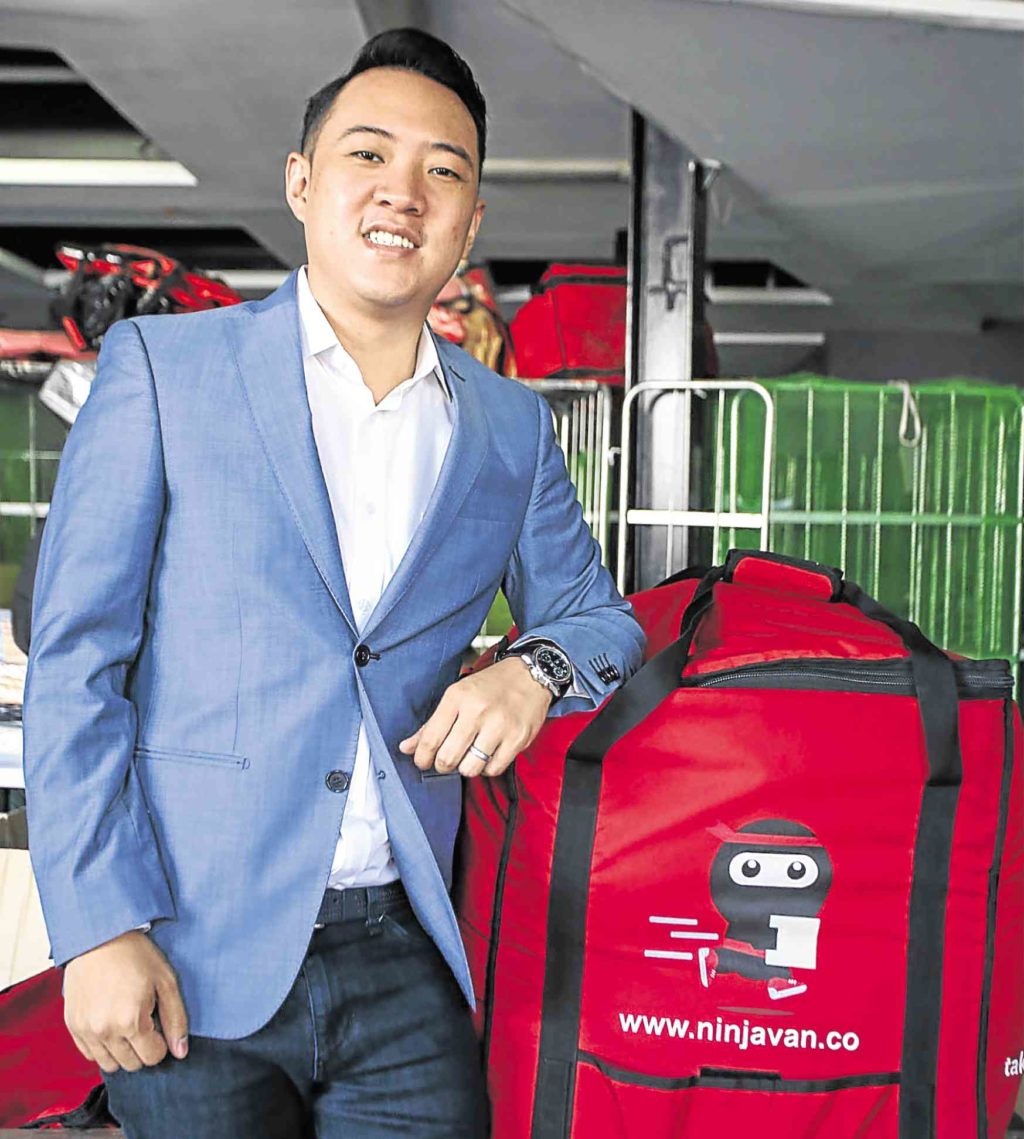Swift, dynamic and dependable are three words used by Martin Cu to describe Ninja Van Philippines, the tech-driven logistics company of which he is country head.
“We get things done—just like real ninjas,” says Cu, who has spent most of his career in digital marketing. “We wanted to position Ninja Van as a future-forward logistics company. Armed with technology, we optimize logistics in Asia so it becomes a simple and seamless affair for business partners and consumers.”
Founded in Singapore, Ninja Van began operations here in the Philippines in 2016. The company also operates in Malaysia, Indonesia, Vietnam and Thailand, and counts in its roster of e-commerce clients Lazada, Shopee, KimStore, and BeautyMNL. Cu says they also serve “traditional” retailers, such as Penshoppe and Human Nature.
“For these kinds of customers, we pride ourselves on filling the technology gap that has largely been missing in this space—working to seamlessly integrate the client’s existing inventory and fulfillment systems with our back-end order-management platform. The end result is more transparency and better accuracy for both our clients and their customers,” he says.
Ninja Van offers a whole suite of logistics services, starting with access to its proprietary shipper dashboard, which allows clients to book and manage all their delivery needs, reserve pickup time slots and monitor their shipments. They can also choose between two options: express (delivery is completed within one working day) or standard courier (delivery within one to three working days for Metro Manila, or within three to seven working days for non-Metro Manila areas). Cu says they now deliver to over 40 provinces, or 80 percent of the country.
Their edge, Cu says, are their “value-added” services, which includes the cash-on-delivery (COD) option. “We’ve focused on service inclusion. Many of our competitors do not offer COD. Ninja Van prides itself on being one of the first to offer [this] as a standard offering to all shippers,” he says.
Another value-added service is Ninja Van’s doorstep pickup of packages from small and medium enterprises (SMEs), a market which he says is still largely underserved by the logistics industry.
“I believe that the incumbents in the logistics market have often underestimated and overlooked the importance of the Filipino entrepreneur (small and medium-sized shippers) and have over-indexed to fighting over the business of large, consolidated corporates. We have worked to build our solution to allow companies both big and small to benefit from our technology solution and logistics capabilities,” Cu explains.
With a degree in English Language and Literature/Letters from Boston University, the 29-year-old Cu started his career at Globe, working with mobile internet products. He then moved to Zalora, his first startup experience, where he stayed for over three years and last took on the role of marketing director, responsible for all country-level marketing.
In 2015, Cu began working for the subscription-based streaming video company HOOQ, which allowed him to represent the company and launch their product across different markets in Southeast Asia.
It was in Singapore where he met Ninja Van CEO Lai Chang Wen. “Once I learned about how Ninja Van was solving the e-commerce logistics problem in Singapore, it was clear to me what an exciting opportunity a business like this had to help disrupt the Philippines’ logistics scene and further drive the growth of local e-commerce. In 2016, I took the plunge and joined the Ninja Van team,” he says.
Digital marketing, he says, has taught him to solve problems “quantitatively and rationally,” as well as understand both the online consumer—what matters to them when it comes to their shopping experience—and the seller, given the country’s challenging archipelagic nature.
“When recruiting for our team, we focus on hiring dynamic problem solvers [who are] passionate about the e-commerce opportunity in the Philippines,” he says. “We empower them to develop new methods to enable our technology and work around the geographic complexities of the Philippines.”
As he expands Ninja Van’s business here in the Philippines, Cu plans to continue bridging the digital-real world divide for e-commerce sellers and consumers through partnerships with retail stores and malls to offer parcel collection and drop-off in the next three to five years. He is also looking forward to continuing a long-term relationship with the Department of Information and Communications Technology’s (DICT) Postal Regulation Division, which he says has been “incredibly supportive of the [company’s] goal to build a better courier service for the Filipino consumer.”
“We’ve managed to work around the challenges of operating in a complicated regulatory environment in the Philippines. Through partnership with the DICT-Postal Regulation Division, we were able to work together to improve and modernize the logistics ecosystem in the Philippines,” he adds.
